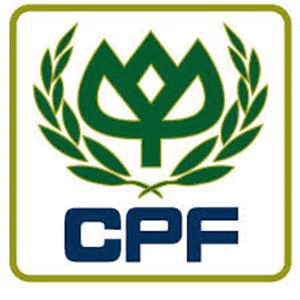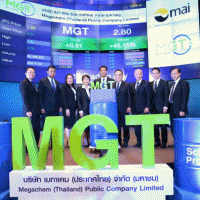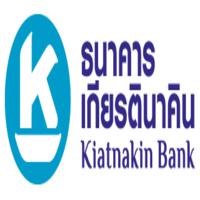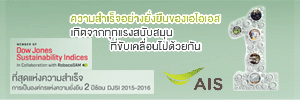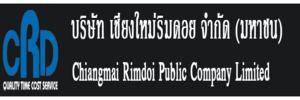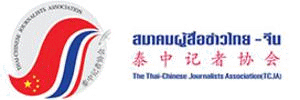ฟิทช์ เรทติ้งส์-กรุงเทพฯ - 2 ตุลาคม 2562: ในงานสัมมนาประจำปีเรื่องความเสี่ยงของเศรษฐกิจโลกที่ฟิทช์ เรทติ้งส์ (ประเทศไทย) ได้จัดขึ้นที่กรุงเทพฯ นักวิเคราะห์อันดับเครดิตประเทศและนักวิเคราะห์อันดับเครดิตธนาคารของฟิทช์ กล่าวว่า ปัจจัยเพื้นฐานของเศรษฐกิจไทยน่าจะยังคงอยู่ในเกณฑ์ดีต่อเนื่อง แม้จะต้องเผชิญกับความท้าทายจากสถานการณ์ความขัดแย้งทางการค้าระหว่างประเทศในหลายประเทศ ในขณะที่ภาคการธนาคารของไทยมีความเสี่ยงจากปัจจัยภายนอก เช่นการชะลอตัวของเศรษฐกิจจีน ในระดับที่น้อยกว่าธนาคารอื่นในภูมิภาคเอเชียที่ได้รับการจัดอันดับเครดิตโดยฟิทช์
งานสัมมนาประจำปีของบริษัท ฟิทช์ เรทติ้งส์ (ประเทศไทย) จำกัด ในปีนี้มีเจ้าหน้าที่ระดับสูงจากหน่วยงานของรัฐ นักลงทุน และผู้บริหารระดับสูงจากภาคธุรกิจและภาคการเงิน เข้าร่วมงานมากกว่า 300 คน โดยในงานสัมมนาดังกล่าว ฟิทช์ได้รับเกียรติจาก ดร.อุตตม สาวนายน รัฐมนตรีว่าการกระทรวงการคลัง เป็นผู้กล่าวเปิดงาน
คุณเจมส์ แมคคอร์แมค กรรมการผู้จัดการ หัวหน้ากลุ่มจัดอันดับเครดิตประเทศของฟิทช์ เรทติ้งส์ กล่าวว่า การปรับแนวโน้มอันดับเครดิตของประเทศไทยที่ BBB+ เป็น “แนวโน้มอันดับเครดิตเป็นบวก” เมื่อเดือนกรกฎาคม 2562 เป็นผลมาจากการที่ฟิทช์มีความมั่นใจมากขึ้นว่าความไม่แน่นอนทางการเมืองที่ยังคงมีอยู่ไม่น่าจะส่งผลให้เกิดความชะงักงันในการบริหารจัดการเศรษฐกิจมหภาคในปัจจุบันซึ่งอยู่ในเกณฑ์ดี ทั้งนี้ ประเทศไทยได้ผ่านอุปสรรคที่สำคัญทางการเมืองไปแล้วในช่วงต้นปีที่ผ่านมา โดยสามารถจัดตั้งรัฐบาลใหม่ที่มาจากพลเรือนได้สำเร็จหลังจากมีการจัดการเลือกตั้งทั่วไปในเดือนมีนาคม นอกจากนี้ประเทศไทยยังคงสามารถรักษาฐานะหนี้สินต่างประเทศ (external finance) และฐานะการคลังสาธารณะ (public finance) ให้อยู่ในระดับที่ดีได้ต่อเนื่องในช่วงหลายปีที่ผ่านมา
ในขณะที่ปัจจัยเสี่ยงหลักต่อแนวโน้มการเติบโตทางเศรษฐกิจคือ สถานการณ์การค้าโลกที่กำลังเผชิญกับความท้าทายมากขึ้น แม้ว่าความเสี่ยงดังกล่าวจะถูกบรรเทาลงได้บางส่วน จากนโยบายทางการเงินที่ผ่อนคลายมากขึ้นและการลงทุนในโครงการโครงสร้างพื้นฐานต่างๆ ซึ่งมีวัตถุประสงค์เพื่อเพิ่มการลงทุนและสนับสนุนการเติบโตของเศรษฐกิจในระยะปานกลาง ความเสี่ยงของเศรษฐกิจโลกที่สำคัญ ได้แก่ ความไม่แน่นอนในด้านนโยบาย โดยเฉพาะในด้านของผลกระทบต่อทิศทางการค้าโลก รวมถึงกำหนดการการถอนตัวจากสหภาพยุโรปของสหราชอาณาจักร (UK’s Brexit) ที่ใกล้เข้ามา ซึ่งอาจะส่งผลให้เกิดภาวะถดถอยทางเศรษฐกิจ (recession) ของสหราชอาณาจักรและการชะลอตัวของอัตราการเติบโตทางเศรษฐกิจในกลุ่มประเทศ Euro Zone ทั้งนี้ ฟิทช์เชื่อว่าการดำเนินนโยบายทางการเงินแบบผ่อนคลายโดยธนาคารกลางของประเทศต่างๆ อาจไม่สามารถชดเชยการชะลอตัวของปริมาณการค้าได้ทั้งหมด และรัฐบาลที่เป็นผู้กำหนดนโยบายอาจต้องหันไปพึ่งพานโยบายการคลังแบบขยายตัว (accommodative fiscal policy) มากขึ้น ซึ่งรวมถึงประเทศที่มีระดับหนี้สินที่อยู่ในระดับที่สูงอยู่แล้ว
คุณพาสันติ์ สิงหะ ผู้อำนวยการอาวุโส ฝ่ายจัดอันดับเครดิตสถาบันการเงินของฟิทช์ เรทติ้งส์ (ประเทศไทย) กล่าวว่าธนาคารพาณิชย์ไทยมีความพร้อมในด้านของการรับมือกับความผันผวนและในด้านการรองรับความเสี่ยงด้านสินเชื่อ และธนาคารไทยน่าจะสามารถเผชิญกับความเสี่ยงจากการชะลอตัวของเศรษฐกิจจีนหรือการชะลอตัวของตลาดอสังหาริมทรัพย์ อย่างไรก็ตาม ผลประกอบการของธนาคารไทยในระยะสั้น อาจถูกจำกัดด้วยความท้าทายจากสภาพแวดล้อมในการดำเนินธุรกิจ ทั้งนี้การชะลอตัวลงอย่างรุนแรงของเศรษฐกิจจีนน่าจะส่งผลกระทบในระดับที่สูงกว่าต่อตลาดที่พัฒนาแล้ว (developed market) เช่น ฮ่องกงหรือสิงคโปร์ ในขณะเดียวกันภาคการธนาคารที่มีความเสี่ยงสูงจากภาคอสังหาริมทรัพย์ ได้แก่ประเทศในตลาดที่พัฒนาแล้ว เช่น ออสเตรเลียและนิวซีแลนด์ ส่วนประเทศในตลาดที่กำลังพัฒนาได้แก่ ประเทศมาเลเซีย
คุณเมอร์วิน แทง ผู้อำนวยการอาวุโสและหัวหน้าทีมวิเคราะห์ด้านสิ่งแวดล้อม สังคม และธรรมาภิบาล ฝ่ายการเงินเพื่อความยั่งยืน (Sustainable finance) ของ ฟิทช์ เรทติ้งส์ กล่าวถึงทิศทางการพัฒนาในด้านสิ่งแวดล้อม สังคม และธรรมาภิบาล (environmental, social and corporate governance หรือ ESG) ในภูมิภาคต่างๆ โดยปัจจัยด้าน ESG อาจส่งผลกระทบในระดับหนึ่งต่ออันดับเครดิตของบริษัทประมาณร้อยละ 22% ของบริษัททั้งหมดที่ได้รับการจัดอันดับเครดิตในโลก และมากกว่าครึ่งหนึ่งของกลุ่มบริษัทดังกล่าวได้รับผลกระทบจากปัจจัยด้านธรรมาภิบาล อันดับเครดิตของบริษัทในกลุ่มตลาดที่กำลังพัฒนามักจะได้รับผลกระทบจากปัจจัยด้านธรรมาภิบาลมากกว่า ในขณะที่ปัจจัยในด้านความโปร่งใสทางการเงิน (financial transparency) และโครงสร้างการกำกับดูแลกิจการ (governance structure) โดยเฉพาะในด้านความเสี่ยงในการพึ่งพาผู้บริหารรายบุคคล (key man risk) ด้านสัดส่วนการถือหุ้นในบริษัทของผู้ถือหุ้นรายใหญ่ (concentration ownership) และความเป็นอิสระของคณะกรรมการบริษัท (board independency) เป็นปัจจัยที่พบได้มากในกลุ่มประเทศในภูมิภาคเอเชีย ในทางกลับกันปัจจัยด้านสิ่งแวดล้อมและด้านสังคม เป็นปัจจัยที่มีผลกระทบต่ออันดับเครดิตของบริษัทในกลุ่มตลาดที่พัฒนาแล้วมากกว่าในกลุ่มตลาดที่กำลังพัฒนา เนื่องจากตลาดพัฒนาแล้วมีกฎระเบียบและข้อบังคับที่เข้มงวดกว่า รวมถึงมีบทลงโทษที่รุนแรงกว่าในกรณีที่มีการฝ่าฝืน
Fitch Ratings: Thailand's Economy, Banks Resilient to Rising Global Risks
Fitch Ratings-Bangkok-02 October 2019: Thailand's economic fundamentals will remain sound despite challenges from global trade tensions, while the Thai banking sector is less exposed to external risks, such as a slowdown in China, relative to other Fitch-rated banks in Asia, according to Fitch Ratings' sovereign and banking analysts at its annual global risk conference in Bangkok.
Fitch Ratings (Thailand)'s annual global risk conference was attended by more than 300 executives and officials from the regulatory, investor, financial and corporate sectors. Dr Uttama Savanayana, Minister of Finance, was the guest of honour at the event and provided the keynote address.
Mr.James McCormack, Managing Director, Global Head of Sovereigns at Fitch Ratings, said the revision of the rating Outlook on Thailand's 'BBB+' sovereign to Positive in July 2019 was driven by Fitch's increasing confidence that lingering political risks are unlikely to derail sound macroeconomic management. Thailand overcame a major political hurdle earlier this year with the formation of a new civilian-led government following elections in March, and the country has maintained sound external and public finance positions for several years.
Risks to the growth outlook stem primarily from the challenging global trade environment, although this may be mitigated by the more-supportive monetary policy and infrastructure projects, which are intended to increase investment and support growth in the medium term. Global risks centre on policy uncertainty, particularly as it affects the trade outlook, and the UK's upcoming Brexit deadline, which could result in a recession in the UK and weaker growth in the euro zone. Fitch believes widespread monetary easing by central banks cannot fully offset the slowdown in trade, and policymakers will turn increasingly to accommodative fiscal policies, including in countries where government debt levels are already high.
In his presentation on the banking sector, Mr. Parson Singha, Senior Director, Financial Institutions at Fitch Ratings (Thailand) Limited, highlighted that Thai banks were well-positioned, in terms of potential vulnerabilities and loan-loss buffers, and they were able to cope with downside stresses such as a China economic slowdown or a property-market downturn. However, the upside for Thai banks' financial performance may be limited in the near term due to the challenging operating environment. A sharp slowdown in China would likely have the most impact on developed markets, such as Hong Kong and Singapore. Meanwhile, banking sectors with high property exposures include those in developed markets, such as Australia and New Zealand, and in emerging markets such as Malaysia.
Mr Mervyn Tang, Senior Director, Head of ESG Research, Sustainable Finance at Fitch Ratings, discussed regional trends in environmental, social and corporate governance (ESG). ESG factors have some level of influence on the credit ratings of around 22% of corporate issuers in the world, with the Governance element accounting for more than half of affected issuers. Emerging-market credit ratings are more often influenced by governance issues. Financial transparency and governance structure issues relating to key-person risks, concentrated ownership and board independence are most common in Asia. Environmental and social factors have more influence on credit ratings in the developed markets than in emerging markets due to tighter regulation and stiffer penalties for violations.
Contact:
Vincent Milton
Managing Director
+66 2108 0169
This email address is being protected from spambots. You need JavaScript enabled to view it.
Fitch Ratings (Thailand) Limited
Park Ventures Level 17
57 Wireless Road, Lumpini
Patumwan, Bangkok 10330
Thailand
******************************************
![]()
![]()
![]()
![]() กด Like - Share เพจ Corehoon-Power Time เพื่อติดตามเคล็ดลับ ข่าวสาร เทรนด์ และบทวิเคราะห์ดีๆ อัพเดตทุกวัน คัดสรรมาเพื่อท่านนักลงทุนโดยเฉพาะ
กด Like - Share เพจ Corehoon-Power Time เพื่อติดตามเคล็ดลับ ข่าวสาร เทรนด์ และบทวิเคราะห์ดีๆ อัพเดตทุกวัน คัดสรรมาเพื่อท่านนักลงทุนโดยเฉพาะ
Click Donate Support Web























































































